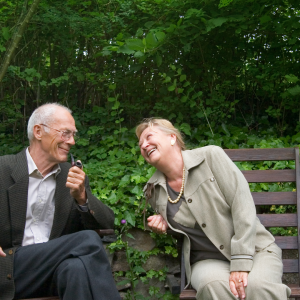Hormones play a big part in our lives as human beings and have an affect on relationships in more ways than one. We use hormones to interact with each other, and if we are not careful some of these interactions create unexpected consequences. We all have hormones that are present in our bodies. They cause a number of different behaviors including our libido (sex drive), mood, and even the spark we feel when we see someone attractive.

“To understand the hormone-behavior relationship, it is important briefly to describe hormones. Hormones are organic chemical messengers produced and released by specialized glands called endocrine glands. Hormones are released from these glands into the blood, where they may travel to act on target structures at some distance from their origin. Hormones coordinate the physiology and behavior of individuals by regulating, integrating, and controlling bodily functions. Over evolutionary time, hormones have often been co-opted by the nervous system to influence behavior to ensure reproductive success.”
Once you’ve found someone you’re attracted to, your body begins its work to make sure you have an active sex life. It thinks about everything you need to do for love, from making babies to producing joyful chemicals during moments of intimacy. Your brain releases dopamine when it’s time for romance, and oxytocin will help with bonding during sex. Relationships are known to affect our hormones, especially when we’re in long-term relationships. One study found that women were less satisfied with their relationship when they were menstruating. I am sure many of you have experienced this feeling. The hormone oxytocin is released when we orgasm, but it can also be released during a hug or a kiss. This chemical has several functions, including creating feelings of love and connection. And as oxytocin levels rise in the brain, people start to feel more socially confident.
3 steps for a healthy relationship:
1. Communication– even when it’s a tough conversation, communication is key to your health and hormones as you can reduce stress when you talk through what you are feeling.
2. Quality Time Together– you need to put those phones down, turn the ring volume off, and take time to listen to your partner, friend or even parent. Give that relationship 100% of you!
3. Laughter– smile at each other, and find things that bring that laugh out! Play cards, games, or go out for entertainment to find that smile with one another. When we smile at each other we are releasing hormones as we take that joy in. You will find you are smiling back at that person.

Hormone changes can motivate you to establish greater independence from your parents, inspire you to seek novel and exciting experiences, and compel you to form deep and binding attachments with your romantic partner. It’s fascinating to think about the chemistry of sex and love! The effect of relationships on our hormones is not as simple as researchers once thought. Once believed that relationships were either good for health or bad for health, recent findings show that how we feel about our relationship is more important than the relationship itself. In a relationship, we end up taking on the same behaviors and habits as our partner due to the positive feedback loops between us. Our brain is wired in such a way that when it receives positive feedback, it wants to make that situation last as long as possible. Therefore, if your partner checks in on you or does nice things for you, you can become more attached to them. If the behavior is consistently rewarding over time, it becomes part of who you are because your brain begins to forge neural connections between the behavior and its reward. This means that when something happens outside of a relationship that feeds into this loop it gets passed on to our partner by cell phone or email and this creates a positive feedback cycle between us as well.
3 ways to show your love without spending money:
- Tasks– do a household task/chore without being asked. Start dinner, finish the dishes, fold laundry, when we notice our partners are working with us, we become a team and we feel joy as we connect this way.
- Talk– take time to ask each other questions and look each other in the eyes while you listen. “How was your day?, long day, same here. Tell me what made you feel it was a long day.” When we ask questions about a response that was given, we are showing we care.
- Activity– move together. Go on walks, bike, roller-skate, dance, try yoga, meditate, or even go for a car drive together. When we are moving and active we are releasing hormones bringing us joy as we have experiences together. You do not have to be good at any of this, you can even YouTube beginner dance lessons together, but every experience we have with our loved one will create that bond and bring us happiness.
In conclusion, our hormones play an important role in the formation of relationships. Our brain, body and heart all contribute to our feelings for other people and knowing more about how hormones affect these complex relationships can help us all learn more about ourselves and those around us.
Source: Hormones and Behavior NOBA

